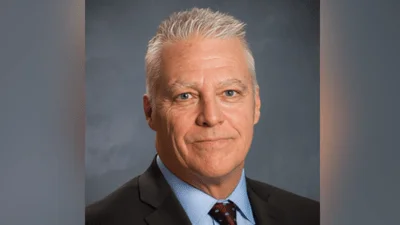Already struggling under a multi-tiered fiscal burden, Illinois taxpayers are now confronting incontrovertible evidence of serious fiscal setbacks in their state as a new report revealed staggering amounts of pension debt and escalating red ink.
Illinois residents live every day in a state evidencing one of the worst economic recoveries, highest unemployment rates and the very highest property taxes in the nation. Now, the Springfield-based Commission on Government Forecasting Accountability (COGFA) has released a report that lays out the details.
COGFA recently released a summary showing that the state’s pension debt has increased to a record-breaking $130 billion in 2016 — up 17 percent from 2015. Pension costs now account for over one-quarter of the state's entire annual budget.
This means that each household in the taxpayer base is accountable for $27,000 in state pension debt, a figure $4,000 higher than the previous year’s total. Additionally, Illinois’ five pension funds are seriously underfunded, with an estimated 38 cents available on the dollar reserved for future payouts.
According to Fitch Ratings, a global leader in research and credit ratings based out of London and New York, Illinois’ pension plans are the worst-off in the nation.
“Now more than ever, this shows that the state’s pension math doesn’t work,” Ted Dabrowski, vice president of policy at the Illinois Policy Institute, said. “It doesn’t work for struggling taxpayers who are forced to pay more and more into the pension funds. It doesn’t work for the poor and disadvantaged who are seeing core services cut, and it doesn’t work for state workers whose retirements are at risk.”
Illinois taxpayers are expected to shoulder the burden of more than $1 billion of pension debt in 2018, meaning probable reductions in state-sponsored services. If the brakes aren’t applied, costs will continue to spiral upward.
The public already has registered its displeasure with property tax hikes, an unfeasible small- and mid-size business climate, and the state’s stark credit rating tumble, reported this year after Moody’s downgraded the state, adding to its steep recovery list.
An October survey conducted by the Paul Simon Public Policy Institute at Southern Illinois University Carbondale showed that nearly half of respondents expressed a desire to move out of the state, citing high taxes as the main reason.
Chicago attorney Eugene Keefe said in August that Illinois taxpayers cannot afford "ghost pensioners," referring to a practice whereby state workers called "ghost pension payrollers" (GPPs) receive pay through a pension plan — in addition to benefits — at a rate that far exceeds what was actually put into the plan.
"What I don’t think most folks understand is this 'hidden' aspect of GPPs ... on Illinois state government,” Keefe said. “There are about 50,000 current state employees. To my understanding, there are about 250,000 folks on Illinois state fake government pensions.”
Keefe offered numerous cost-cutting suggestions, including reducing or removing staff as electronic technology lightens the administrative load in government agencies.
“All employers have more retirees than active workers,” Keefe said. “Only Illinois state government has literally hundreds of thousands of Ghost Pension Payrollers who get paid, but don’t do any current work for their pay … they are back on your and my payroll, even though they are no longer working."
Others offered up more radical suggestions, including one former Federal Deposit Insurance Corp. (FDIC) official who recommended that both the state of Illinois and the city of Chicago seek bankruptcy protection.
William Isaac, former FDIC chairman, said the state and city are in “dire” financial condition.
"Taxes keep rising, while staggering amounts of red ink are projected as far as the eye can see," Isaac said. "The city and the state should act now to restructure their liabilities and put the fiscal mess behind them. This can be accomplished by utilizing Chapter 9 and other tools.”
Isaac said bankruptcy protection would be “unpleasant,” but that the affected jurisdictions would be more likely to rebound in the long run with that course of action.
“Lawmakers have no excuse to continue ignoring Illinois’ crippling pension crisis,” Dabrowski said.
“They can immediately implement reforms that don’t require changes to the Illinois Constitution, including putting all new government workers on 401(k)-style plans and providing optional self-managed accounts to existing workers.”






 Alerts Sign-up
Alerts Sign-up